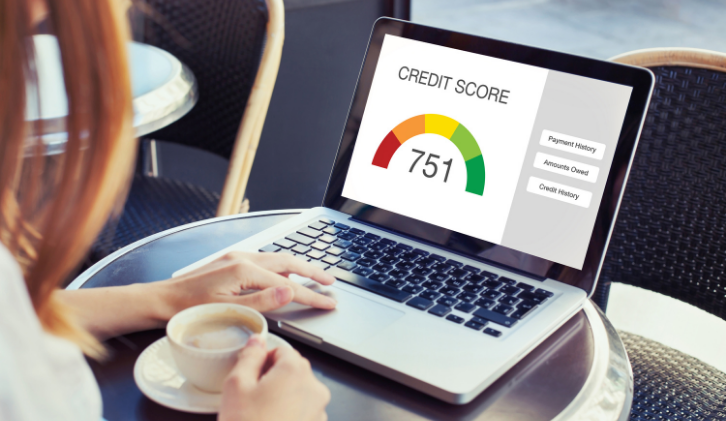Small Business Credit Builder – Part 2: Improving Your Credit Score
After learning how to understand your credit rating in Part One, in the second installment of our Business Credit Builder, Liberis tells you everything you need to know about improving your score; putting you in the best position possible when looking to develop your business.
Return to blog posts
Tips to Improve Your Score
After learning how to understand your credit rating in Part One, in the second installment of our Business Credit Builder, Liberis tells you everything you need to know about improving your score; putting you in the best position possible when looking to develop your business.
Immediate actions:
Register to Vote
Lenders like to see that prospective borrowers are on the electoral roll. This has absolutely nothing to do with politics or your view points on the world but simply gives proof of your address and identification. This evidence can boost your chance of being accepted for credit. If you are not already registered, or believe you are still registered at a past address, visit www.aboutmyvote.co.uk to update your details.
Cancel Unused Cards
If you have credit cards that you are certain you are not going to use, it is probably best to cancel them. This can not only protect you against fraud, but reduce the amount of excess credit you appear to have. Lenders will typically look at all of your other accounts; meaning that if you already have four credit cards, despite only using two of them, you may be rejected for additional credit.
However, sometimes having access to additional credit can be a good thing! So, if you do choose to keep your other accounts, make sure you don’t forget to update your address or married name on them as things change.
Make sure the details on your credit report are correct
If you are looking to apply for a major piece of credit you will want to ensure that your details are correct. This involves checking your credit report and rectifying any issues, as the smallest of errors could lead to a rejection; for instance, a missed payment on a product you’d forgotten about, overlooked financial links to someone who are no longer linked to, and any products left open at an old address.
It is vital that your details are checked prior to application. Check with at least the two biggest agencies, Experian and Equifax, to make sure that the information is the same on each and correct any mistakes.
Long term actions:
Pay on Time
Whilst you are trying to build your credit rating make sure that any payments you make are on time and are for the correct amount – it might help to consider paying by debit, rather than credit to ensure you don’t miss your payments. If you are taking other action to improve your score but forget to make payments on an existing loan or credit card, you are not going to achieve anything.
When it comes to credit cards, if you can afford it, pay more than the minimum amount due. Lenders will trust that you can afford to have additional credit if you are doing so.
Check your Eligibility
As your rating starts to rise, do not see this as a green light to go out and fill in loads of credit applications. Even though the only way to truly know whether you will be accepted for credit is to apply, each application leaves its mark on your credit file. Even though there is a temptation to keep applying until you are accepted, too many too fast can hurt any future applications and your rating.
If you want to know your eligibility, but don’t want to risk harming your credit rating, use one of the many eligibility calculators available online. This will give you a percentage which indicates your chance of being accepted. Anything over 70% means you have a strong chance of acceptance, over 50% means you have a pretty good chance, and anything under this means it is a risk to apply.
What the Experts Say…
We asked our very own Credit Director, Alex Ivison for his top tips on giving your business the best possible chance to access financial support and maintain a healthy credit file.
Alex Ivison, Credit Director at Liberis
To improve your chances of acquiring financial help, you should make sure that you run your existing credit products as well as you can. This means ensuring that you pay off credit cards and suppliers on time, and avoid missing payments – consider paying by direct debit to make sure you don’t forget to pay! Always make sure you borrow wisely and credit check your supply chain, and carry out regular reviews on your standing orders and direct debits.
It is also essential that you access both your commercial and consumer credit files, which you can find out through a credit reference agency. Make sure that you review them on a regular basis so you know how other lenders might view you, and ensure that the report is up-to-date and doesn’t contain any incorrect information like credit product still registered at previous addresses.
And lastly, although it can be tempting to try and hide the parts of your business that aren’t going so well, business underwriters are very thorough so it is always best to be honest when applying for credit. Underwriters understand that no business is perfect so it is likely that they will still be positive about your business, just as long as you’re open about both the good and bad.
How to Build a Credit History
Until now, you may not have needed to apply for credit during the setting up and running of your business. But although you may have not needed credit for anything, a lack of it can actually hurt your credit rating and prevent you from borrowing in the future – you’ve got to get the balance just right. And so, to gain a good credit rating, you must first build a credit history – but how?
Pay by Direct Debit
Paying by direct debit can be a life saver for those who are forgetful. Not only does it ensure that bills are paid on time but this will also build your credit history. Paying important bills such as your TV, internet and mobile phone contracts on time will show that you are able to make regular payments in a timely manner.
Open a bank account
Having a UK current account shows that you can manage money responsibly; all it takes is ensuring you stay out of your overdraft and that there is enough money to cover the bills every month. Managing your bank account effectively will help build a healthy credit history.
Credit Builder Credit Cards
A credit builder credit card is a type of card that is available to those who are likely to be rejected for mainstream credit cards. They give their users access to credit even if they have a poor or limited credit history and can help people as a first step on the credit ladder. The downside to these cards is that their interest rates are very high. Therefore, we recommend making sure that you pay the full amount back each month to ensure you don’t incur any interest and maintain a fantastic repayment record to your name.
Poor Credit – What’s Next?
If you do have poor credit and don’t have a lot of time to improve your rating don’t panic! There are still finance options for those that have bad credit.
Credit is a necessity to some micro and small businesses, particularly those that wish to grow as a business, but need the initial cash injection to get it. It is true that traditional lenders will consider you a high risk if you have bad credit history, meaning that they will not lend you money.
If you have been denied a loan for your business and the appeal was unsuccessful, there are alternative finance options available that are not dependent on a gleaming credit rating.





















